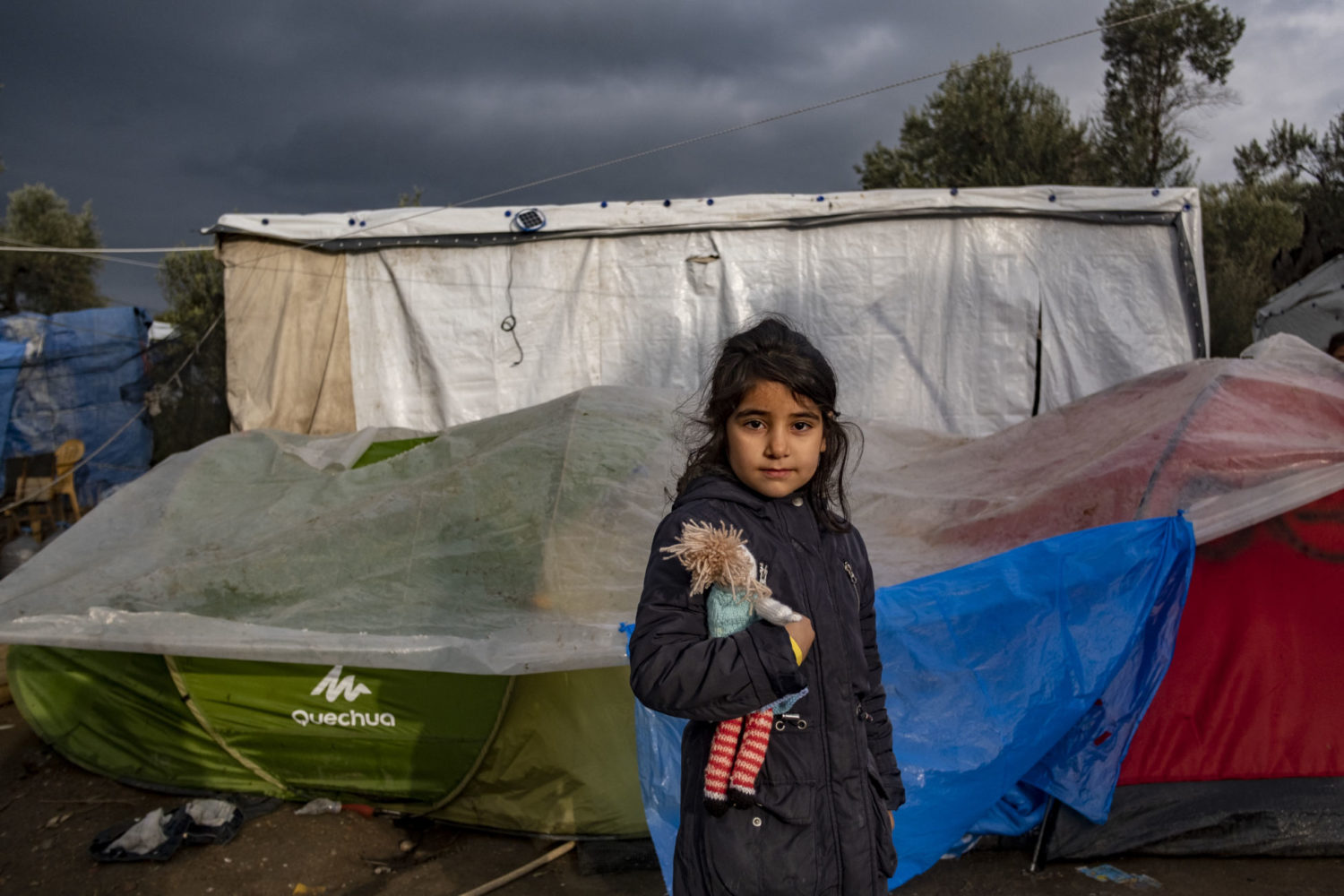21 January 2019 –UNICEF is urging European governments to agree on a region-wide approach to better protect refugee and migrant children who continue to face grave dangers and violations of their basic rights during dangerous sea journeys and on arrival to Europe.
It is estimated that approximately 400 refugee and migrant children – an average of 29 children a day – arrived on the shores of Greece, Italy and Spain during the first two weeks of January alone. Children are enduring especially perilous journeys due to freezing temperatures and rough waters during the winter months.
This past weekend, it was reported that an estimated 170 people either died or went missing in two separate shipwrecks on the Mediterranean. There are reports that children and a pregnant woman were on board. Last week, a nine year old girl from Iraq reportedly drowned in the Mediterranean while trying to reach the island of Samos with her family.
Earlier this year, at least six children were stranded on the Mediterranean aboard the Sea Watch 3 rescue ship because it was not permitted to dock. The children on board remained in limbo, some for up to 18 days, unable to access urgent medical care or other essential services until the vessel was eventually allowed to disembark.
“Every day, children risk their lives traveling across dangerous waters in freezing conditions with the hope of finding safety and opportunities to build a decent future. A region-wide approach would help prevent these children – many of whom have already experienced exploitation and abuse during their long journeys – from suffering further,” said UNICEF Regional Director for Europe and Central Asia and Special Coordinator for the Migrant Response in Europe, Ms. Afshan Khan.
It is estimated that 23,000 refugee and migrant children arrived by sea to Greece, Italy and Spain in 2018, the vast majority fleeing conflict, extreme poverty and persecution.
One of these children is 12-year-old Osama who fled the ongoing conflict in Yemen. Osama and his family were recently transferred from the Reception and Identification Centre in Moria, on the island of Lesvos in Greece to Athens. “I thought ‘it’s over, I’m going to die.’ This is how my life ends” he told UNICEF about crossing the sea to reach Greece with his family. “My future in Yemen was uncertain, I couldn’t study to be a doctor or an engineer or anything. I want to be a doctor because I want to help others and my family,” he said.
To better protect vulnerable refugee and migrant children, UNICEF is calling for a region-wide predictable approach that allows rescue vessels to safely disembark as rapidly as possible. Child rights compliant reception and identification facilities must also ensure children’s access to vital protection, health and psychosocial support and all children must have fair and timely access to due process, including legal aid and asylum procedures.
More resettlement pledges that prioritize children as well as faster family reunification procedures from all EU Member States are also urgently needed.
“This year marks the 30th anniversary of the United Nations Convention on the Rights of the Child, a milestone that serves as a vital reminder that all European Member States have committed to protect the rights of all children – regardless of their migration status,” said Khan.
UNICEF’s work helps refugee and migrant children access adequate housing, psychosocial support and education while strengthening national child protection systems to benefit all vulnerable children. Across the region, UNICEF advocates to protect the rights of all refugee and migrant children and promotes social inclusion within their new communities.
Last year UNICEF appealed for USD $34 million to support refugee and migrant children in Europe, in total USD $15 million in funds were received, leaving a 55 per cent funding gap.
ENDS
Notes to editors:
Broadcast quality photos and videos can be downloaded here: https://weshare.unicef.org/Package/2AMZIF3MT59N
For more information, please contact:
Morwenna Darby, + 44 (0)20 7375 6124, [email protected]
Unicef UK Media Team, 0207 375 6030, [email protected]
About Unicef
Unicef is the world’s leading organisation for children, promoting the rights and wellbeing of every child, in everything we do. Together with our partners, we work in 190 countries and territories to translate that commitment into practical action, focusing special effort on reaching the most vulnerable and excluded children, to the benefit of all children, everywhere.
Unicef UK raises funds to protect children in danger, transform their lives and build a safer world for tomorrow’s children. As a registered charity we raise funds through donations from individuals, organisations and companies and we lobby and campaign to keep children safe. Unicef UK also runs programmes in schools, hospitals and with local authorities in the UK.
For more information please visit unicef.org.uk
Follow UNICEF UK on Twitter, Facebook and YouTube.


